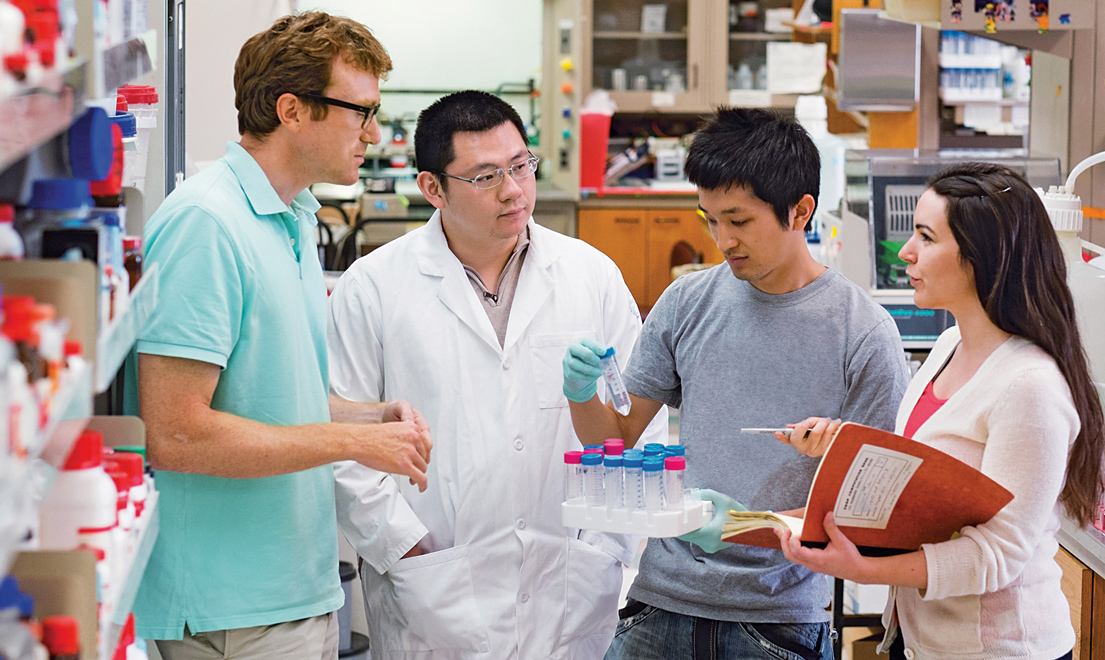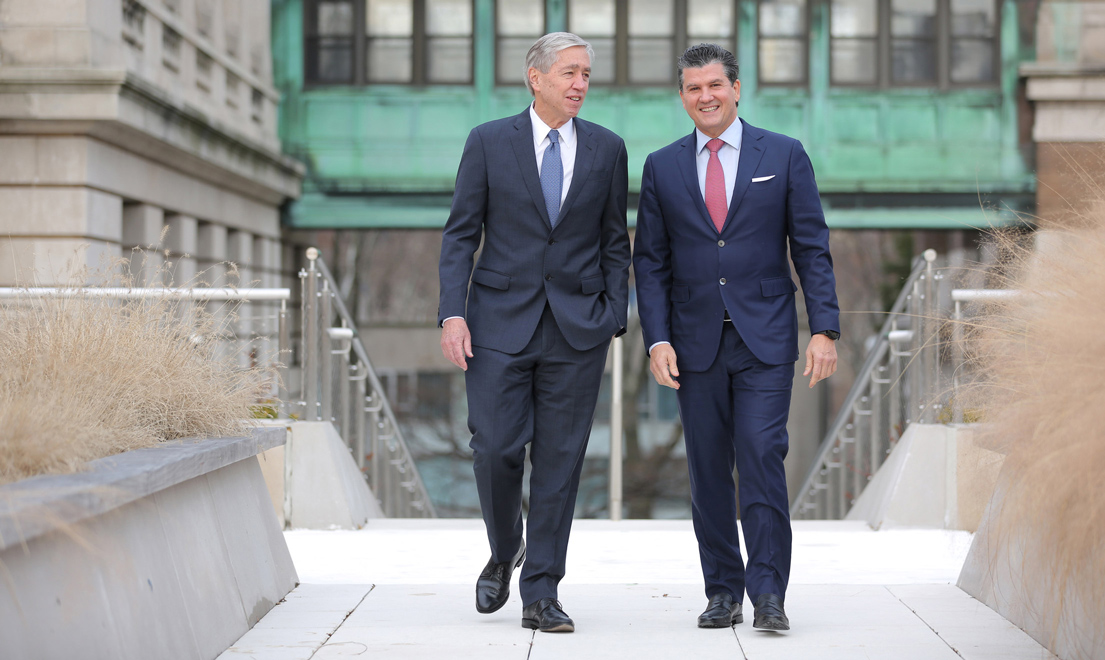
Science and medicine are entering an explosive era of discovery, fueled by technological advances and the impact of new translational opportunities that are speeding up the timeline between scientific discovery and clinical application.
The Rockefeller University is poised to take advantage of this inflection point.
The environment at Rockefeller is perfect for developing a deep relationship between innovation, basic biology, and the understanding of human health and disease.

Today we are witnessing a remarkable convergence of science and medicine. Basic scientists are making fundamental discoveries that illuminate the causes of human health and disease, while studies of patients are revealing unanticipated biological mechanisms in disease causation. This cross-fertilization is accelerating our understanding of basic biology and offering new opportunities to prevent, treat, and cure disease. The impact on human health will be truly transformational.
Rockefeller University and its preeminent research hospital are uniquely positioned to lead this revolution.
With your help, our faculty can seize the opportunities on the horizon. Together, we can create a healthier world today and for generations to come.

President Richard P. Lifton and Board Chair William E. Ford
Over the past decade, Rockefeller has made substantial investments in creating the ideal environment for translational research. Generous support to the university’s two previous capital campaigns made ambitious construction and renovation projects possible, setting the stage for the collaborative ventures at the heart of the new strategic plan.
The 2020–2024 Strategic Plan for The Rockefeller University, adopted by the Board of Trustees in November 2019, calls for a broad array of initiatives to capitalize on the convergence of science and medicine.
High-risk research that aims for high rewards sets Rockefeller apart from mainstream science where success is measured in smaller increments.
We hire only the most creative investigators and provide them with the scientific freedom and the financial resources to pursue novel research.
Annual core grants act as venture capital, enabling our lab heads to pursue bold questions. This innovation funding would not be possible without the support of generous benefactors who underwrite named chairs and laboratories.
At Rockefeller, we are all motivated by a common mission. We all share the same passion and thrill for exploring the unknown and defining the elusive.
The university has a robust translational research ecosystem, which ensures that Rockefeller investigators have the funding, scientific resources, and entrepreneurial knowledge to take their discoveries from the bench to the clinic. The ecosystem includes:
Thanks to the incredibly supportive environment at Rockefeller, my research team was able to develop two potential cancer therapeutics that are now in clinical trials. It has always been my dream to have my science help patients.
Solving complex scientific problems requires an integration of disciplines, technologies, and expertise. Rockefeller's open structure encourages the kind of cross-pollination that catalyzes cures.
Through the Campaign for the Convergence of Science and Medicine, Rockefeller has created three new interdisciplinary centers or institutes and hopes to establish two more:
Paradigm-shifting technologies are radically changing the way research is conducted, fueling progress toward discoveries that could barely be imagined even five years ago.
A generation of scientific breakthroughs will be dependent on new tools and instruments.
For Rockefeller to sustain its extraordinary scientific pace, support for the timely acquisition of new technologies must be a priority. A comprehensive brochure, Technologies Powering Today's Scientific Revolution: High Impact Philanthropy at Work, is available.
Of all the organizations that my family’s philanthropy has helped to create, The Rockefeller University has contributed more to the well-being of mankind and the world than any other.
Rockefeller provides an extraordinary environment that allows a singular focus on science.
This includes state-of-the-art research facilities, subsidized housing, and a green campus that is an oasis on Manhattan’s Upper East Side.
Reliable on-site childcare is vital to scientific achievement—a reality underscored by the 2020 pandemic. Rockefeller’s Child and Family Center offers exceptional care and an enriching environment for infants, toddlers, and preschool-aged children.
The university’s unique scientific environment is sustained through generous philanthropic support of both current operations and future goals. Donors to the endowment ensure the university’s long-term fiscal health. They are betting on Rockefeller’s 120-year record of success and ability to steward their funds for even greater future impact.
We now have the roadmap for translating scientific discoveries into new medicines. With your help, Rockefeller can seize the opportunities on the horizon.
Together, we can create a healthier world for today and for generations to follow.